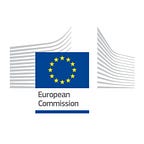#SaferTogether against COVID-19: protecting refugees in Uganda
Uganda is no stranger to epidemics. Before the coronavirus, there was Ebola. These epidemics burdened the region, particularly Uganda’s large refugee communities. These outbreaks taught Ugandan authorities and EU-supported humanitarian organisations an important lesson: act swiftly to prevent broader social and economic devastation.
The urgency of prevention
Mwamini is a 16-old refugee from Congo. She lives with her two younger sisters and younger brother in Kyaka II, a refugee settlement in western Uganda. Two years ago, their mother abandoned them at the Ugandan border. Mwamini took responsibility for her siblings, and brought them to the camp.
Before the coronavirus crisis, they survived by selling clothes at a market, while Mwamini took sewing classes at the camp’s EU-funded vocational training program. Her brother dreams of being a house builder and her younger sister a doctor.
The arrival of the COVID-19 pandemic threatened their livelihood. EU humanitarian aid has allowed them to have food and shelter, and stay healthy, keeping their dreams for a better future intact.
Fighting the virus while building foundations
The Kyaka II refugee settlement is located in an isolated, picturesque part of western Uganda where rolling hills spread out beneath wide-open skies. Today, 124,000 people are living there, most of them recent arrivals fleeing Ebola and mass killings by rebels in Congo.
Since the outbreak of COVID-19, the EU has moved quickly to provide emergency humanitarian aid for Kyaka II and other refugee camps in the country. In 2020 alone, the EU contributed more than €34 million to address the needs of Uganda’s 1.4 million refugees and their host communities.
Along with €9 million aimed directly at battling the virus, this funding provides essential services, including food, health care, education, access to safe water, and sanitation. It also offers direct cash assistance to vulnerable families, which helps local economies remain active.
Minonga and his family arrived at Kyaka II in 2016. Back in Congo, Minonga lived in constant fear that he or his family would be attacked. Now at the camp, he used financial assistance from EU-funded humanitarian organisations to start a business. He and his wife have some livestock, a sewing machine and a shop. He has regular clients, and he hopes to grow his business outside the settlement.
EU humanitarian funding is critical for people like Minonga and Mwamini and their families. It allows them to work towards the future, while helping them stay safe from the effects of the pandemic.
Acting today for a better tomorrow
Uganda has the largest refugee population in Africa. The pandemic will make it even harder for people in the camps to find jobs and reduce their dependency on aid. School closures during the pandemic can lead to many young people dropping out.
EU humanitarian funding to Uganda helps push back against these trends. Work training programmes help people gain tools to start businesses, benefiting communities and families. In addition to broader efforts to keep people from getting sick, these measures will limit the pandemic’s long-term impact of the pandemic on people’s lives. By acting quickly today, the EU helps ensure a better tomorrow.
